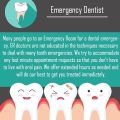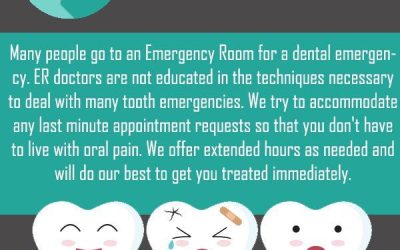If you’ve ever experienced the unsettling sight of blood when brushing or flossing, you’re not alone. Many people wonder whether they can simply wait it out and hope for the best when they notice bleeding gums. However, it’s essential not to ignore this symptom, as it could be an indication of a more significant oral health issue. In this article, we’ll explore the potential causes of bleeding gums and why it’s crucial to seek professional dental care sooner rather than later. Time to put your oral health first and find out if you should hit the brakes or step on the gas when it comes to seeing a dentist for bleeding gums.
Understanding Bleeding Gums
Bleeding gums can be a concerning issue, and it’s important to understand its causes, symptoms, and potential consequences. When your gums bleed, it often indicates an underlying issue that needs to be addressed promptly.
Causes of Bleeding Gums
There are several factors that can contribute to bleeding gums. One of the most common causes is poor oral hygiene. When plaque and tartar build up along the gumline, it can lead to gum inflammation and bleeding. Other causes include aggressive brushing or flossing, hormonal changes during pregnancy, vitamin deficiencies, certain medications, and systemic conditions such as diabetes or leukemia.
Symptoms of Bleeding Gums
Recognizing the symptoms of bleeding gums can help you understand whether you’re experiencing this issue. Besides visible bleeding when brushing or flossing, other symptoms may include swollen or tender gums, persistent bad breath, receding gumline, loose teeth, or a change in your bite. If you notice any of these symptoms, it’s crucial to take them seriously and seek appropriate dental care.
Potential Consequences of Ignoring Bleeding Gums
Ignoring bleeding gums can have serious repercussions on your oral health. If left untreated, it can progress into gum disease, known as periodontitis, which can lead to gum recession, tooth loss, and even bone damage. Additionally, research has shown a link between gum disease and various systemic conditions like heart disease, diabetes, and respiratory infections. Therefore, addressing bleeding gums promptly is not only important for your oral health but also for your overall well-being.
When to Seek Dental Care
Knowing when to seek dental care for your bleeding gums is crucial for prompt diagnosis and treatment. Depending on the severity of your symptoms, there are different levels of urgency.
Seeking Immediate Dental Care
If your bleeding gums are accompanied by severe pain, pus discharge, high fever, or sudden swelling in the face or jaw, it’s essential to seek immediate dental care. These symptoms may indicate an advanced infection or abscess that requires urgent attention to prevent further complications.
Determining Urgency
If your bleeding gums are not accompanied by severe symptoms, it’s still important to consult with a dentist to determine the urgency of your situation. They will assess your oral health, inquire about your medical history and symptoms, and conduct any necessary diagnostic tests to identify the underlying cause of your bleeding gums.
Waiting for a Scheduled Appointment
If your bleeding gums are mild and not causing significant discomfort, waiting for a scheduled dental appointment may be appropriate. However, keep in mind that it’s still essential to address the issue promptly. Delaying treatment can allow the underlying issue to worsen and lead to more severe consequences.
Self-Care Measures for Bleeding Gums
While waiting for a dental appointment or to complement professional treatment, there are several self-care measures you can take to improve your oral health and alleviate bleeding gums.
Improving Oral Hygiene
Improving your oral hygiene routine is crucial in managing bleeding gums. Make sure to brush your teeth at least twice a day using a soft-bristled toothbrush. Pay extra attention to the gumline, using gentle circular motions. It’s also important to floss daily to remove plaque and debris from between your teeth and along the gumline. However, be gentle when flossing, as aggressive or improper technique can worsen bleeding gums.
Using Antiseptic Mouthwash
Rinsing your mouth with an antiseptic mouthwash can help reduce plaque and bacteria in your mouth, reducing the risk of gum inflammation. Look for a mouthwash that specifically targets gum health and follow the instructions on the label for best results.
Eating a Balanced Diet
A balanced diet plays a significant role in maintaining healthy gums and overall oral health. Incorporate foods rich in vitamin C, such as citrus fruits and leafy greens, as it helps strengthen blood vessels and promotes gum health. Avoid sugary and acidic foods and beverages that can contribute to plaque buildup and gum inflammation.
Common Dental Treatments for Bleeding Gums
When self-care measures are not enough to alleviate bleeding gums, your dentist may recommend certain treatments to address the underlying issue.
Professional Teeth Cleaning
Professional teeth cleaning, also known as dental prophylaxis, is a standard procedure to remove plaque and tartar buildup. During this treatment, a dental hygienist will use specialized tools to scale your teeth and remove any hardened deposits. This can help reduce gum inflammation and bleeding.
Scaling and Root Planing
In cases of more severe gum disease, your dentist may recommend scaling and root planing. This deeper cleaning procedure involves removing tartar and bacteria from the pockets between your teeth and gums. It aims to eliminate infection and promote gum healing.
Gum Surgery
For advanced cases of gum disease, surgical intervention may be necessary. Gum surgery aims to repair and regenerate damaged gum tissue and reduce pocket depths. Procedures like gum grafting and flap surgery can help restore gum health and prevent further progression of the disease.
The Link Between Bleeding Gums and Overall Health
It’s important to recognize the connection between bleeding gums and overall health. The health of your mouth can significantly impact your general well-being.
Periodontitis and Systemic Diseases
Research has shown that gum disease, specifically periodontitis, is associated with various systemic conditions. The bacteria and inflammation in the mouth can enter the bloodstream and contribute to the development or exacerbation of conditions like heart disease, diabetes, respiratory infections, and even certain types of cancer. By addressing bleeding gums promptly, you can potentially reduce the risk of these systemic diseases.
Effects of Inflammation on General Health
Inflammation plays a significant role in both gum disease and various systemic conditions. Chronic inflammation in the body can contribute to the development of diseases and negatively impact overall health. By maintaining good oral health and preventing gum disease, you’re actively reducing the inflammatory burden on your body.
Maintaining Oral Health to Protect Overall Well-being
Given the strong link between oral health and overall health, it’s crucial to prioritize your oral hygiene and seek regular dental care. By maintaining good oral health habits and addressing any issues promptly, you can protect not only your teeth and gums but also your overall well-being.
Understanding the Role of Dentists
Dentists play a vital role in maintaining oral health and preventing or treating gum disease. Understanding their expertise and the importance of regular dental check-ups can significantly contribute to your oral health.
Dentists as Oral Health Experts
Dentists are oral health experts who undergo extensive education and training to diagnose and treat various dental conditions, including gum disease. They have the knowledge and skills to identify the underlying cause of your bleeding gums and develop an appropriate treatment plan.
Importance of Regular Dental Check-ups
Regular dental check-ups are crucial for early detection and prevention of dental issues. By scheduling routine visits with your dentist, they can monitor the health of your gums, identify any signs of gum disease, and provide professional cleanings. These check-ups can help prevent more severe problems down the line.
Role of Dentists in Preventing and Treating Gum Disease
Dentists play a significant role in preventing and treating gum disease. They can educate you on proper oral hygiene techniques, provide guidance on lifestyle changes for better oral health, and offer professional treatments when needed. By working closely with your dentist, you can effectively manage bleeding gums and prevent the progression of gum disease.
Personal Risk Factors for Bleeding Gums
While some factors contributing to bleeding gums are beyond your control, there are personal risk factors that you can address to reduce the likelihood of this dental issue.
Poor Oral Hygiene Habits
Inadequate oral hygiene habits, such as infrequent brushing and flossing or using improper technique, can increase the risk of gum inflammation and bleeding. By adopting good oral hygiene practices and maintaining a consistent routine, you can significantly reduce this risk.
Smoking and Tobacco Use
Smoking and tobacco use are well-known risk factors for gum disease and can exacerbate bleeding gums. The harmful chemicals in tobacco products impair blood flow to the gums, weaken the immune system, and hinder the healing process. Quitting smoking or avoiding tobacco can have a positive impact on your oral health.
Systemic Conditions
Systemic conditions like diabetes, leukemia, and HIV/AIDS can weaken the immune system and make you more susceptible to gum disease. Managing these conditions effectively and maintaining good oral hygiene habits are essential in reducing the likelihood of bleeding gums.
Preventing Bleeding Gums
Prevention is always better than treatment when it comes to bleeding gums. By incorporating certain habits and lifestyle changes, you can take proactive steps to prevent this dental issue.
Brushing and Flossing Techniques
Proper brushing and flossing techniques are crucial in preventing bleeding gums. Use a soft-bristled toothbrush and gentle circular motions to clean your teeth and gums. Floss daily using a gentle sawing motion, carefully sliding the floss between your teeth and along the gumline. Avoid aggressive brushing or flossing, as it can harm your gums.
Regular Dental Check-ups
Regular dental check-ups are essential in preventing bleeding gums. By visiting your dentist every six months, they can monitor your oral health, provide professional cleanings, and identify any early signs of gum disease. Early detection and intervention can help prevent the progression of bleeding gums.
Lifestyle Changes for Better Oral Health
Certain lifestyle changes can significantly contribute to better oral health. Avoiding sugary and acidic foods and beverages, quitting smoking or tobacco use, managing stress levels, and maintaining a balanced diet rich in vitamins and minerals can all support healthy gums and prevent bleeding.
Dental Anxiety and Overcoming Fear
Dental anxiety and fear are common barriers that prevent people from seeking dental care for bleeding gums. However, there are strategies to overcome these challenges and make your dental visits more comfortable.
Dealing with Dental Phobia
If you experience dental phobia, it’s important to communicate your fears with your dentist. They can offer various techniques, such as distraction techniques, sedation options, or gradual desensitization, to help you feel calmer during dental treatments. Openly discussing your fears can lead to a more supportive dental experience.
Finding a Supportive Dentist
Finding a supportive dentist who understands your concerns and creates a comfortable environment is crucial in overcoming dental anxiety. Look for dentists who specialize in treating anxious patients or inquire about their approach to patient comfort. Building a trusting relationship with your dentist can alleviate anxiety and make dental visits more manageable.
Relaxation Techniques
Implementing relaxation techniques before and during dental visits can help reduce anxiety. Deep breathing exercises, listening to calming music, or practicing visualization can all promote a sense of relaxation and ease your nerves. Discuss these techniques with your dentist to find the best approach for you.
Conclusion
Bleeding gums should never be ignored, as they can indicate underlying oral health issues that require attention. By understanding the causes, symptoms, and potential consequences of bleeding gums, you can make informed decisions about seeking dental care. Remember to take self-care measures, such as improving oral hygiene and maintaining a balanced diet, while waiting for dental appointments. Dentists play a crucial role in preventing and treating gum disease, so regular check-ups are essential. Assess your personal risk factors and make necessary adjustments to prevent bleeding gums. Overcoming dental anxiety is possible with the right strategies and support. Overall, by prioritizing your oral health and addressing bleeding gums promptly, you can protect your teeth, gums, and overall well-being.












